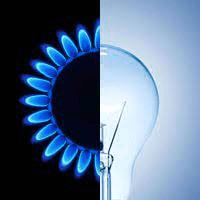Commercial gas and electric services are the lifeblood of modern businesses, providing the essential power needed to drive operations and fuel growth. Yet, for many business owners and managers, navigating the complexities of these services can be daunting. This content aims to demystify commercial gas and electric services, providing clarity on key concepts, regulations, efficiency strategies, and future trends.
Commercial Gas Services
Commercial gas supply is integral to various industries, including manufacturing, hospitality, and healthcare. Gas is commonly used for heating, cooking, and powering equipment. Understanding the types of gas services available, such as natural gas and propane, is essential for businesses to make informed decisions about their energy needs. Additionally, familiarity with commercial gas infrastructure components, such as pipelines and meters, helps businesses manage their gas supply effectively.
Demystifying Electric Services
Electricity powers a wide range of business operations, from lighting and heating to running machinery and computers. Commercial electric services encompass various aspects, including utility providers, distribution networks, and tariff structures. Demystifying electric services involves explaining common terms like kilowatt-hours and peak demand, helping businesses decipher their electric bills and optimize usage.
Comparing Gas And Electric Services
Businesses often face the decision of whether to use gas or electric services, depending on their specific needs and circumstances. Gas may offer cost savings and reliability advantages in certain situations, while electric services provide flexibility and environmental benefits. By understanding the pros and cons of each option, businesses can make informed choices that align with their objectives and budget constraints.
Regulations And Compliance
Regulatory compliance is a crucial aspect of managing commercial gas and electric services. Businesses must adhere to safety standards, environmental regulations, and industry-specific requirements to avoid penalties and ensure the well-being of employees and the community. Staying updated on regulatory changes and implementing robust compliance measures is paramount for businesses of all sizes.
Maximizing Efficiency And Cost-Effectiveness
Efficiency is key to reducing operating costs and minimizing environmental impact. Businesses can optimize gas and electric usage through measures such as upgrading to energy-efficient equipment, implementing smart technologies, and conducting regular maintenance. By prioritizing efficiency and cost-effectiveness, businesses can enhance their bottom line while reducing their carbon footprint.
Future Trends And Innovations
The landscape of commercial gas and electric services is continually evolving, driven by technological advancements and changing market dynamics. From renewable energy integration to grid modernization initiatives, businesses face opportunities and challenges in adapting to future trends. Embracing innovation and staying informed about emerging technologies will be critical for businesses to remain competitive and sustainable in the long term.
Final Thoughts
Commercial gas and electric services play a vital role in powering progress across various industries. By understanding the fundamentals of these services, businesses can make informed decisions, navigate regulatory requirements, optimize efficiency, and prepare for future trends. Demystifying commercial gas and electric services empowers businesses to unlock their full potential while minimizing costs and environmental impact.
FAQs
What are the main differences between commercial gas and electric services?
Commercial gas services typically involve the supply of natural gas or propane for heating, cooking, and powering equipment, while commercial electric services provide electricity for lighting, heating, and running machinery.
How can businesses ensure regulatory compliance with commercial gas and electric services?
Businesses should stay updated on safety standards, environmental regulations, and industry-specific requirements relevant to their operations. Implementing robust compliance measures and conducting regular audits can help ensure adherence to regulations.
What are some strategies for maximizing efficiency and cost-effectiveness with commercial gas and electric services?
Strategies include upgrading to energy-efficient equipment, implementing smart technologies for monitoring and control, conducting regular maintenance to optimize performance, and exploring renewable energy options where feasible.
What are some emerging trends and innovations in commercial gas and electric services?
Emerging trends include the integration of renewable energy sources like solar and wind power, advancements in grid modernization technologies such as smart meters and energy storage systems, and the adoption of electric vehicles and charging infrastructure.
How can businesses prepare for the future of commercial gas and electric services?
Businesses can prepare by staying informed about industry developments, investing in flexible and scalable infrastructure, fostering a culture of innovation and sustainability, and collaborating with utility providers and other stakeholders to leverage emerging opportunities.


